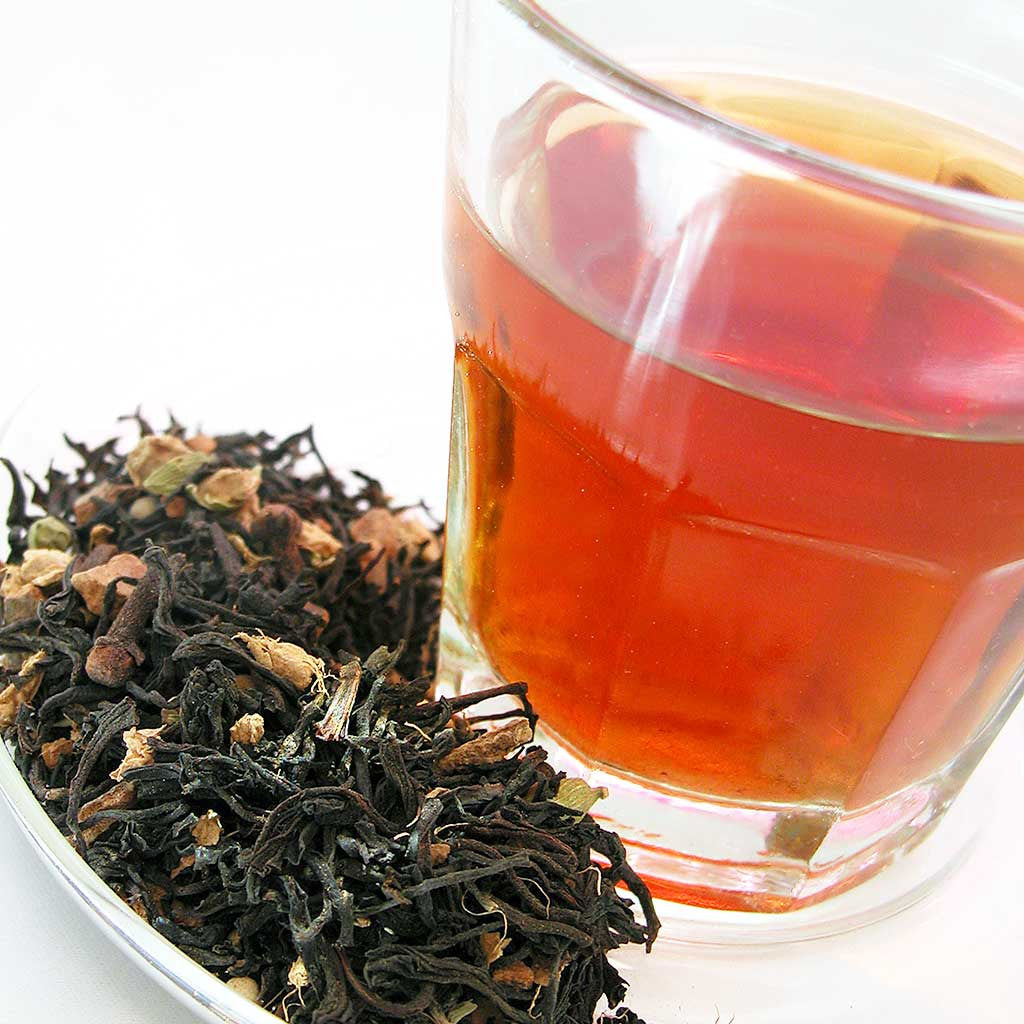Exploring the Myths and Health Benefits of Chai Tea: What You Need to Know
Posted by JESSIE X

If you're a fan of aromatic, flavorful beverages, chances are you've come across chai tea at some point. This delightful blend of black tea and a myriad of spices has gained popularity around the world for its unique taste and potential health benefits.
In this article, we'll dive into the world of chai tea, separating fact from fiction and uncovering the many health benefits it may offer.
The Myth of Chai Tea Blends
One common misconception about chai tea is that it's a specific blend of spices and tea leaves that must be followed to the letter. In reality, there's no one-size-fits-all recipe for masala chai. The beauty of chai lies in its versatility, allowing for countless variations to suit different tastes.
You can find chai tea blends with varying levels of spiciness and sweetness. Some people prefer their chai to be robust and peppery, while others opt for a sweeter, milder version. There are even chai lattes, which incorporate frothy milk to create a creamy and indulgent drink. So, feel free to experiment with different combinations until you find your perfect cup of chai.
Chai Tea Myths: Debunked
Myth 1: Chai Tea is Unhealthy
One common misconception is that chai tea is unhealthy due to its rich and creamy nature. While it's true that some chai preparations can be high in calories and sugar, it's essential to remember that chai tea itself is not inherently unhealthy. Chai tea can offer various health benefits, which we will explore shortly.
To enjoy chai more healthily, you can adjust the ingredients to suit your preferences. Opt for lower-fat milk or milk alternatives, and use less sweetener or choose natural sweeteners like honey. This way, you can enjoy the taste of chai without excess calories.
Myth 2: Chai Tea is Always Caffeinated
Chai tea can be either caffeinated or caffeine-free, depending on the type of tea used as its base. Traditional chai is made with black tea, which contains caffeine. However, you can easily make caffeine-free chai by using decaffeinated black tea or caffeine-free herbal tea blends as the base. So, if you're looking to reduce your caffeine intake, you can still enjoy a soothing cup of chai without the jitters.
Myth 3: Chai Tea is Not Suitable for Pregnant Women
Pregnant women often worry about their caffeine intake, and rightly so. Excessive caffeine during pregnancy can have adverse effects. However, not all chai teas are high in caffeine. As mentioned earlier, you can make chai with caffeine-free tea varieties, making it a safe and enjoyable choice for pregnant women. Just be mindful of the ingredients you use and consult your healthcare provider for personalized advice.
The Health Benefits of Chai Tea
1. Antioxidant-Rich Black Tea
Black tea, the base of chai, is packed with antioxidants called polyphenols. These compounds have been linked to numerous health benefits, including reducing the risk of heart disease and certain types of cancer. Antioxidants help combat free radicals in the body, which can cause cell damage and contribute to various diseases.
2. Chai Spices with Health Benefits
The spices used in chai tea bring more than just flavour to the table. Each spice has its own set of potential health benefits. For example:
- Cinnamon may help regulate blood sugar levels and has anti-inflammatory properties.
- Cardamom is known for its digestive benefits and may help reduce bloating.
- Cloves are rich in antioxidants and have been used to soothe toothaches.
When combined, these spices create a powerful blend that not only tastes fantastic but may also contribute to your overall well-being.
3. Immune System Support
The spices in chai are not only flavorful but also potentially beneficial for your immune system. Ingredients like ginger and black pepper have been traditionally used to help boost immunity and ward off colds and infections. Drinking chai tea regularly can be a tasty way to give your immune system a little extra support.
4. Regulate Blood Sugar Levels
Several components of chai tea, including cinnamon and ginger, have been studied for their potential to help regulate blood sugar levels. While it's not a substitute for medical treatment, including chai as part of a balanced diet may be a flavorful way to support your blood sugar management.
5. Heart Health
The antioxidants in chai tea play a role in promoting heart health by reducing the risk of heart disease. Additionally, some of the spices in chai have been associated with lowering blood pressure. Again, it's important to remember that chai should complement a heart-healthy lifestyle, including a balanced diet and regular exercise.
6. Myth Busted: Chai Tea vs. Green Tea
You may have heard that green tea is the ultimate health elixir, and while it does have its own set of benefits, chai tea should not be underestimated. Both teas offer distinct advantages. Green tea is well-known for its high concentration of catechins, which are potent antioxidants. On the other hand, chai provides a different set of antioxidants and spices that can be equally beneficial in their own right.
Chai Tea and Weight Loss
One of the most popular questions about chai tea is whether it can aid in weight loss. While chai tea itself isn't a magic weight loss elixir, it can be a helpful addition to your diet if consumed in moderation and as part of a balanced lifestyle.
Here's how chai tea can potentially support your weight loss goals:
1. Satiety:
The combination of spices in chai can create a sense of fullness, which may help curb your appetite and reduce the urge to snack between meals.
2. Metabolism Boost:
Some of the spices in chai, like black pepper and ginger, are believed to have a thermogenic effect, which can slightly increase your metabolic rate and calorie burning.
3. Stress Reduction:
Stress and emotional eating can contribute to weight gain. Chai's calming properties may help you manage stress and avoid stress-induced overeating.
However, it's crucial to keep in mind that any potential weight loss benefits of chai tea depend on how you prepare it. Adding excessive sugar or high-fat milk can counteract these benefits by adding empty calories. To keep it weight-friendly, opt for minimal sweetening and lower-fat milk options.
Chai Tea Side Effects
While chai tea offers numerous health benefits, it's essential to be aware of potential side effects, especially when consumed in excess. Some people may experience:
Stomach Discomfort: The spices in chai can be too intense for some individuals, leading to stomach discomfort or indigestion.
Allergies: If you have allergies to any of the chai spices, you may experience allergic reactions.
Interference with Medications: Certain spices in chai, like ginger, can interact with medications. If you're on medication, consult your healthcare provider before consuming large quantities of chai.
In Conclusion
Chai tea is more than just a trendy beverage; it's a rich and flavorful tradition with the potential to offer numerous health benefits. From the antioxidant power of black tea to the healing properties of spices, chai has a lot to offer your taste buds and your well-being.
As with any food or drink, the key to maximizing its benefits is moderation and mindful consumption. Whether you're sipping a soothing cup of hot chai on a winter evening or enjoying a refreshing iced chai tea latte on a summer day, you can relish the delightful taste and all the potential health benefits this beloved drink has to offer.
So, go ahead, explore the world of chai tea, brew a cup, and savour the delightful fusion of spicy tea and the healthful goodness it brings to your life. Your taste buds and your well-being will thank you.
SHARE:

AUSTRALIA'S FINEST LOOSE LEAF TEAS
Explore Australia's largest selection of Premium Teas & All-Natural Organic Herbal Blends.


